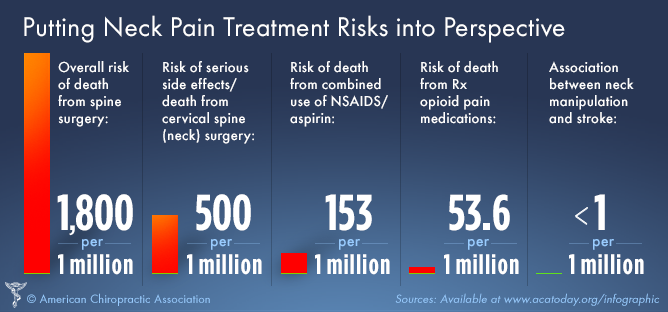When it involves handling your neck and back pain, the food options you make can significantly influence exactly how you feel every day. Visualize being able to ease your discomfort just by changing what you eat. By recognizing the duty of nutrition in pain in the back management and understanding which foods to include or stay away from, you can take positive actions towards a healthier and extra comfy way of life. The connection between nutrition and back health is much more extensive than you may recognize-- let's explore exactly how specific foods can either soothe or aggravate your neck and back pain.
Relevance of Nutrition in Neck And Back Pain
Nourishment plays an essential role in taking care of pain in the back. Your diet regimen can substantially affect swelling degrees and general discomfort degrees in your back. Taking in a well balanced diet regimen rich in nutrients like vitamins D and K, calcium, magnesium, and omega-3 fats can help in reducing swelling and reinforce bones, which are important for back health.
Additionally, preserving a healthy weight through proper nourishment can reduce tension on your spinal column, reducing the risk of pain in the back.
Additionally, specific nutrients like anti-oxidants found in fruits and vegetables can help battle oxidative stress and promote recovery in the body, including the back muscular tissues and back.
On the other hand, eating extreme quantities of processed foods, sweet beverages, and harmful fats can add to inflammation and weight gain, intensifying neck and back pain.
Foods to Eat for Back Health
To sustain a healthy and balanced back, incorporating nutrient-rich foods into your everyday dishes is key. Consisting of foods high in antioxidants like berries, spinach, and kale can help reduce swelling in your back, easing pain and discomfort. Omega-3 fats found in fatty fish such as salmon and mackerel have anti-inflammatory residential or commercial properties that can benefit your back health and wellness.
Additionally, taking in nuts and seeds like almonds, walnuts, and chia seeds provides crucial nutrients like magnesium and vitamin E, which support muscle mass feature and decrease oxidative tension. Including lean proteins such as hen, turkey, and tofu can help in muscle mass fixing and maintenance, advertising a solid back.
Do not neglect to include click to read or strengthened plant-based alternatives for calcium to sustain bone health. Lastly, hydrate with lots of water to keep your back discs moisturized and working efficiently. By including these nutrient-dense foods in your diet plan, you can nourish your back and assistance general spine health.
Foods to Avoid for Pain In The Back
Go with preventing refined foods high in added sugars and trans fats when looking for relief from back pain. These types of foods can contribute to swelling in the body, which may intensify pain in the back. Say no to sweet treats like candy, pastries, and sweet beverages, in addition to junk food things like burgers, french fries, and fried hen that are commonly packed with trans fats.
In addition, avoid foods consisting of high levels of refined carbs, such as white bread, pasta, and breads, as they can surge blood sugar level levels and possibly intensify inflammation in the body.
It's likewise a good idea to limit your consumption of foods high in hydrogenated fats, like red meat and full-fat milk items, as they can add to inflammation. Refined foods like deli meats, chips, and packaged snacks are typically high in saturated fats and must be eaten in small amounts.
pain in back
To conclude, focusing on your diet plan and making clever food selections can have a significant influence on managing back pain. By incorporating nutrient-rich foods like berries, fatty fish, nuts, and lean proteins, and avoiding refined and sweet things, you can help in reducing swelling and support in general back health. Keep in mind, what you consume plays a vital function in exactly how you really feel, so see to it to prioritize your nutrition for a healthier back.
